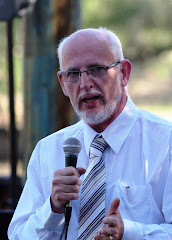It was busy in Cathays Park that Tuesday morning. The Welsh Government was going to buy an airport. Members of a small group meeting in a side room had far more earthly matters on their minds: providing the recently formed Welsh Government Race Forum with a strategic set of priorities.
Where things really matter concerning equalities and human rights, post devolution Wales can be good at talking and listening. In the context of difficult migration and race related challenges, Wales can also be good at doing. Wales has the best refugee doctors training program in the UK if not in Europe. Welsh charities involved with training refugees for employment have a better success rate than other UK agencies. Irony of ironies, Wales has a more generous provision for teaching English to asylum seekers than England has.
Such commitment to equalities and human rights goes beyond the refugee and race sectors. Wales has also passed legislation focusing on children’s rights in the light of UN Conventions and the freedom to speak Welsh. Other characteristics such as gender, sexual orientation and disability, amongst many, fall within the scope of Welsh equality impact assessments. Such assessments are distinctly out of favour with the UK Government. They frequently tell us what we would rather not know about what public policy is actually doing to some of our most vulnerable individuals.
That same morning, the UK Commission on a Bill of Rights published its long awaited Report under the chairmanship of Sir Leigh Lewis. Along with Clive Lewis QC, I’d had the privilege of serving as a member of the Commission’s Advisory Panel from Wales and Scotland. The experience was challenging and agreeable to someone committed to devolution and human rights.
To its credit, the Commission’s consideration of devolution begins with a significant honesty: ‘When the Commission was first established, many had not considered the complications created by this being a kingdom of different nations.’ There were two key complications: the evidence and the constitutional question of who now governs within the realm. The evidence from Wales was crystal clear. As the Report states: ‘In Wales, the great majority of respondents and those we met expressed satisfaction with the Human Rights Act and the European Convention system, and either opposed the creation of a UK Bill of Rights or did not consider it to be necessary or desirable.’ At the forefront of that conviction was the Welsh Government itself. The Scottish Human Rights Commission and Scottish Government were much of the same mind.
Whatever ill-defined and superficial third party polling by press organisations was brought into consideration, one simple reality had to be confronted in Wales. In March 2011, over 63% voting in the referendum on extending the law-making powers of the National Assembly voted “Yes” on the basis that it could not promulgate any legislation incompatible with Convention rights. Whatever the conversations in the Westminster bubble, referenda trump opinion polls.
The question of who governs within the realm was raised directly by the Welsh Advisory Panel members: ‘there is a separate question as to whether it is constitutionally and politically appropriate or desirable for matters affecting devolved legislatures in the exercise of their primary law-making powers to be determined by a UK Bill of Rights enacted by the Westminster Parliament rather than legislation enacted by the relevant devolved legislatures within the United Kingdom.’ The Commission’s response is worthy of note. Not only should any future debate on a UK Bill of Rights be ‘acutely sensitive’ to issues of devolution but ‘must involve the devolved administrations.’ By virtue of the so called ‘Sewel Convention’ - the UK Parliament does not in practice seek to legislate in devolved areas without the consent of the devolved legislatures. It shouldn’t!
Baroness Kennedy of The Shaws and Professor Philippe Sands were not convinced by the majority case for a UK Bill of Rights. Significantly, in their crucial In Defence of Rights paper in the Commission’s Report, they state bluntly that their fellow commissioners gave ‘insufficient weight to the totality of views received…in particular those coming from the devolved nations.’ In the face of what is described as a ‘distinctly London-centric view of the evidence’ they underline the conviction that the views from the devolved nations: ‘were not minority or exotic views.’
Concerning the crucial issue of decoupling, that is using a UK Bill of Rights as a means towards withdrawal from the European Convention, I agree entirely with Sands and Kennedy in their chilling conclusion: ‘Such a path would be catastrophic for the United Kingdom, for Europe and for the protection of human rights around the world.’ That includes groups meeting in Cathays Park seeking to further human rights to the backdrop of buying airports and enhancing Wales’ profile in the world.
Paradoxically, it was that Conservative Scotsman, David Maxwell Fyfe, who was first given the post of minister for Welsh Affairs in 1951. He was a prosecutor at the Nuremberg trials. He could not have imagined that his peripheral ministerial brief at the Home Office would evolve over 60 years into a full democratically elected national legislature and that a Welsh Government and civil society would feel so strongly about a Human Rights Convention he had a hand in drafting. Now, more than ever before: thank goodness for devolution!

